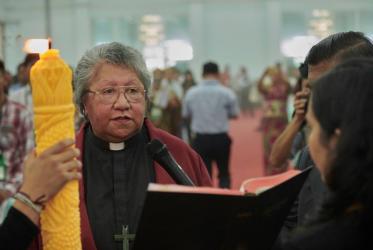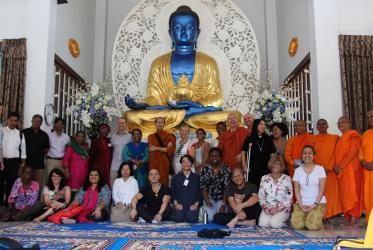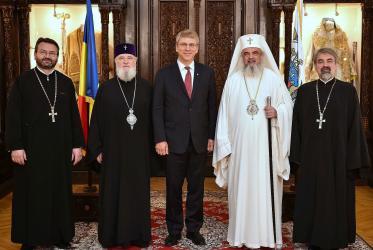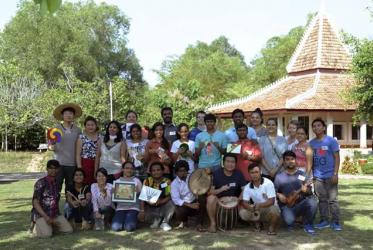Displaying 1 - 17 of 17
Peace is common denominator of all major religions
05 March 2019
Romani people seek “lives of decency, dignity, and justice”
27 September 2018
Paving the way for ecumenical studies, learning English in Bossey
24 September 2018
Religion: Way of war or path to peace?
30 June 2016
WCC Executive Committee works toward a future of peace and justice
19 November 2015
WCC urges responsibility for and support to the refugees in Europe
04 September 2015











